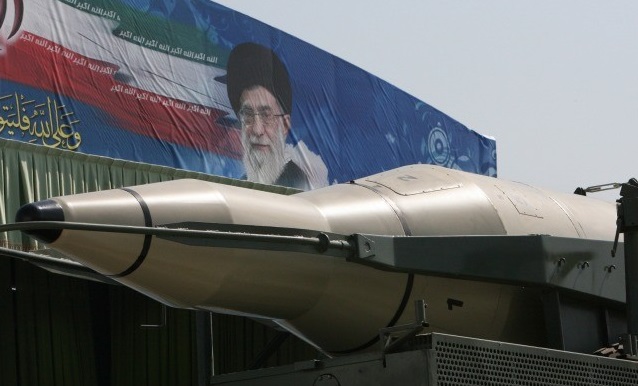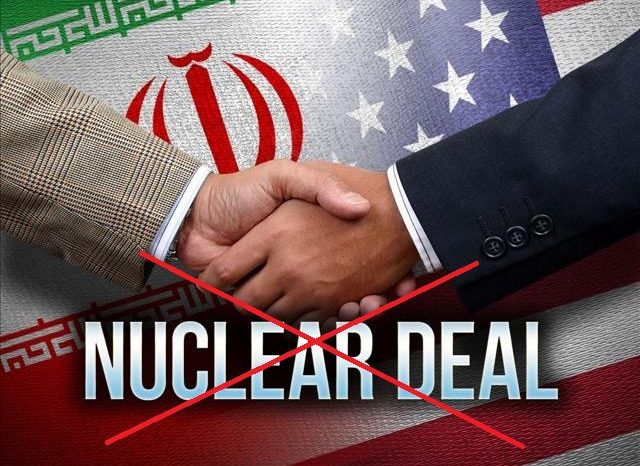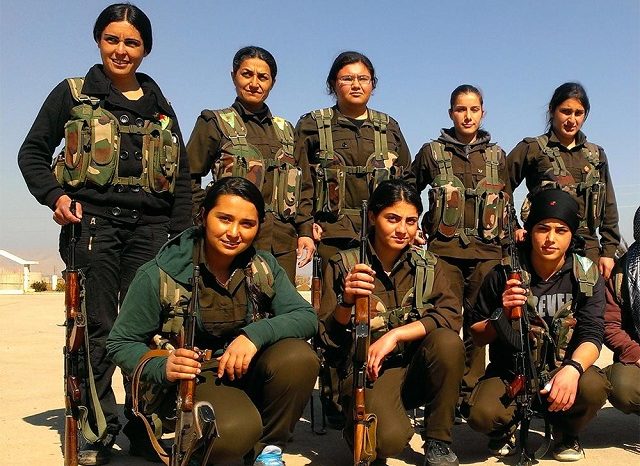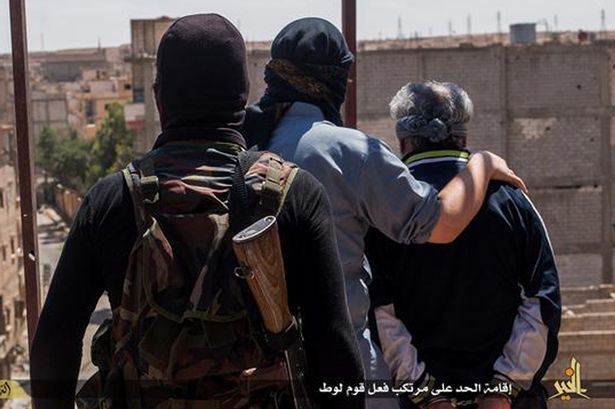Has Iran Developed Nuclear Weapons in North Korea?
During his State of the Union Address on January 28th, President Obama told a joint Session of Congress he saw no need for strengthened standby sanction authorities against Iran in pending legislation, the Nuclear Weapons Free Iran Act (NWFIA), S-1881. Instead he suggested that pursuit of the diplomatic process under the P5+1 agreement and Joint Plan of Action offered the best hope of avoiding a military action.
Last week, Undersecretary of State Wendy Sherman testified in a hearing on the interim deal that went into effect on January 20th. At one point in her testimony, Sherman said, “that if Iran can’t get the bomb then its ballistic missiles would be irrelevant.” The Capitol Hill hearing was held by the Senate Foreign Relations Committee, chaired by a very skeptical Sen. Robert Menendez (D-NJ) co-sponsor of NWFIA. The Committee heard findings from an IMF report that the granting of sanctions relief under the interim deal would virtually eliminate the 2% drop in gross domestic product experienced by Iran’s economy during 2013. This would wipe out the sanctions’ economic impact reducing the country’s crushing hyper-inflation rate from over 47% to 20%. The Wall Street Journal report on Iran’s improving economy noted these comments on the IMF report by critics of the Administrations sanctions relief during the Senate hearing:
“Regrettably, the administration and its allies may be miscalculating,” Mark Dubowitz, the head of the Washington think tank, Foundation for Defense of Democracies, told the Senate Foreign Relations Committee. “If Iran’s economy recovers, the pressure on Iran’s leaders to follow through on a nuclear deal lessens.”
Illinois Sen. Mark Kirk, a Republican, said the IMF report comes after he and others in Congress warned the White House “that providing sanctions relief before dismantling Iran’s illicit nuclear infrastructure would be a serious foreign policy blunder.”
The Obama White House issued a warning to American owned firms not to engage in violation of existing sanctions. President Obama said, “We will come down on them like a ton of bricks.”
This was in the face of Iran’s President and Foreign Minister issuing statements that there would be no dismantling of Iran’s nuclear program facilities or stoppage of work on the Arak plutonium reactor thus throwing into question whether a final P5+1 agreement might even be possible.
When the P5+1 negotiations with Iran reconvened on February 18th in Vienna, Senior American officials raised the issue of Iran’s Ballistic Missiles. That was prompted by an Iranian test of a missile with sufficient range (900 miles) to reach Israel and US assets. Further there was intelligence alleging that Iran was working on fitting a warhead to a Shahab-3 missile. The Wall Street Journal, reported on February 20th, how Iran had successfully excluded missiles from the final agreement negotiations despite U.S. objections:
“Nothing except Iran’s nuclear activities will be discussed in the talks with the P5+1, and we have agreed on it,” [Iran’s Foreign Minister Javad] Zarif told reporters.
Other Iranian officials have said in recent days that Tehran’s missile program is a “red line” and nonnegotiable.
Senior U.S. officials, however, said Thursday that Tehran’s ballistic missile program—which the U.N. fears is being developed to deliver nuclear warheads—would be included in the coming negotiations.
The Freedman Report Revelations
What if Iran already had more than a dozen nuclear bombs and successfully tested a device deep underground? Moreover, what if that information had been shared with Secretary John Kerry, who chose not to disclose it to the other members of the P5+1 delegation? Kerry publicly sought the support of China while endeavoring to halt North Korea’s nuclear program, as China supplies the hermit kingdom’s fuel and international banking services. Arriving in China for talks with the country’s leadership on February 13th, Kerry said:
Our belief is that China can do more now to urge North Korea to begin taking action to come into compliance with its international obligations. And I will encourage China to use all of the means at its disposal to do so. Now I want to make it clear: China has responded.
Note the similar effort that failed when current Undersecretary of State Sherman led Clinton Administration efforts. But international efforts are further confounded by the lack of access to the regime of President Kim Jong Un. Meanwhile North Korea has rebuilt its nuclear facilities. The same Voice of America news report quoted American Enterprise Institute analyst Michael Auslin on how dangerous the situation is:
We understand less about what’s going on in Kim Jong Un’s North Korea than we did with Kim Jong Il’s North Korea. And that’s something to be worried about. And from every indication we have, things are getting more uncertain and capricious there.
Given China’s rising hegemony over the South China Sea, what leverage would the US have in prodding it to convince North Korea? To make matters worse, the UN nuclear watchdog agency, the IAEA has no access to North Korean nuclear facilities. These developments corroborate the assessment of private intelligence and national security analyst Ilana Freedman. See The Freedman Report on Januay31st, “A Friendlier Iran? Or Have They Just Moved Their Nukes to North Korea?” We were prompted to interview Freedman following a discussion of this report during a security conference call. In her published report Freedman cited the following:
According to my sources, Iran began moving its bomb manufacturing operations from Iran to North Korea in December 2012. Two facilities near Nyongbyon in North Pyongan province, some 50 miles north of Pyongyang, have become a new center for Iran’s nuclear arms program.
Over the last year, Iran has been secretly supplying raw materials to the reactor at Nyongbyon for the production of plutonium. At a second facility, located about fifteen miles north and with a code name that translates to ‘Thunder God Mountain’, nuclear warheads are being assembled and integrated with MIRV platforms. MIRVs are offensive ballistic missile systems that can support multiple warheads, each of which can be aimed at an independent target, but are all launched by a single booster rocket. Approximately 250-300 Iranian scientists are now reported to be in North Korea, along with a small cadre of IRGC personnel to provide for their security.
According to the reports, the Iranian-North Korean collaboration has already produced the first batch of fourteen nuclear warheads. A dedicated fleet of Iranian cargo aircraft, a combination of 747′s and Antonov heavy-lifters, which has been ferrying personnel and materials back and forth between Iran and North Korea, is in place to bring the assembled warheads back to Iran.
As to where North Korea might have obtained the feedstock for cooperative development of nuclear devices with Iran, Freedman commented in an email, “going way back, the original feedstock was provided to the North Koreans by the infamous AQ Khan. Then Bill Clinton’s administration provided North Korea with two 1,000-megawatt light-water nuclear power reactors. The U.S.-North Korean Agreed Framework was supposed to keep North Korea from producing bomb grade material in their reactor, but, of course, it did not.”
Those findings were followed a few days later with details on the test of a uranium bomb that may have been detected in mid-January 2014 by seismic services of both the South Korean Defense Ministry and the Japanese Self Defense Forces. According Freedman report:
1) The region in which the blast site is located is extremely mountainous and unpopulated, and the area was selected because the readings taken by North Korean engineers indicated that the sub-strata of the rock has a unique feature that dampens seismic vibrations, making such a test difficult to detect. A low gamma yield weapon was used so that, when detonated at that depth, there would not be much more than background radiation on the surface.
2) The blast site was specially constructed over an eighteen month period in an isolated North Korean Special Forces training facility, approximately 30 miles southeast of the reactor. North Koreans took 18 months to construct the site, since they only worked when they knew US satellites would not be overhead. The site was built with the forced labor of 2,500 prisoners, who were housed in existing barracks on the Special Forces training base. The original report indicated this was an underground storage area or Command Bunker.
3) The test chamber was constructed 1/2 mile underground, by digging a lateral mine shaft on the bottom of a valley. The blast chamber itself was 500 x 500 feet. Once the weapon was in position, a 400 foot long concrete plug was built into the entrance to the chamber and positioned 400 feet into the shaft, effectively sealing the tunnel. Venting tunnels were dug from the blast chamber to distribute the force of the blast laterally, in order to minimize any deformity to the surface that could be observed by comparative satellite imagery.
Despite these elaborate precautions, according to Freedman’s sources, both South Korean and Japanese seismic monitors picked up an earthquake with a 4.2 Richter scale rating on January 16, 2014, just four days before the P5+1 Joint Plan of Action went into effect.
An American, Freedman honed her skills as a business intelligence expert in Israel over a period of 16 years. That experience allowed her to build an open source national security intelligence information network as well as develop an analytical system for evaluation of large amounts of raw unstructured data from multiple sources. Freedman has provided intelligence and security intelligence analysis for law enforcement and corporate clients, to further their security programs, and to protect their intellectual property, operations, assets, and personnel. Through her global network of several hundred associates around the world, she has been responsible for the intercession of at least one mass casualty event, and has helped clients secure their facilities and develop security protocols in high risk environments.
Between 1990 and 2009, as CEO of Gerard Group International, Freedman developed a global network of over 400 specialists and field assets that continues to provide an ongoing resource of essential real-time intelligence and domain expertise. She now works as a private consultant in counter-terrorism intelligence analysis, basing her analysis on open source and proprietary information resources.
In the course of the post-9/11 shift to national security analysis, as CEO of Gerard Group International, she expanded her credible network of information sources and analysts to assist in the evaluation of both confirmed and unconfirmed information.
.jpg)
2007 IAF Operation Orchard Al-Kabir Syrian Reactor. Source: Der Spiegel
Evidence of North Korea Nuclear Cooperation
Freedman began tracking the Iran-North Korea collaboration in 2006, when her sources began providing information about the presence of North Korean scientists in Iran. We noted that David P. Goldman, whose columns appear regularly in the Asia Times and PJ Media, had also raised the question in a March 2012 report. He questioned whether a nuclear test in 2010 by North Korea had really been done for Iran; Did Iran Test a Nuclear Bomb in North Korea in 2010? Goldman noted:
The Sunday morning edition of Germany’s Die Welt reports that Western intelligence agencies detected two nuclear weapons tests in North Korea in 2010, and that one or both of them might have been conducted for Iran. Die Welt sets the reported nuclear tests in the context of new documentation showing that the Iranian regime began its drive for nuclear weapons as early as 1984, under the direct orders of the late Ayatollah Khomeini. The author is the respected German analyst Hans Rühle, whose evaluation of Israel’s capacity to cripple the Iranian nuclear program created a stir last month.
During our interview with Freedman, we pointed out that still photos of North Korean and Iranian nuclear scientists were surreptitiously taken by agents deployed by Israel’s Mossad as part of the preparation for Operation Orchard against what was purported to be a Syrian nuclear plant by the IAF in September 2007. Before and after photographs of that facility were also part of Freedman’s file on the growing relationship between Iran and North Korea, whose influence was clearly evident in the construction design. That raid destroyed the Al Kabir nuclear reactor on the banks of the Euphrates River. The Pentagon went public about these disclosures, while Israel has only referenced the operation. Syria’s Assad has maintained silence about the raid’s apparent success. Watch this CIA video briefing presented to Congress revealing the extent of North Korean technical cooperation in design and construction of a plutonium producing reactor at Al-Kabir in Syria. This evidence from the Operation Orchard IAF raid may be a precedent for the alleged joint Iran North Korean nuclear development project at Nyongbyon.
.jpg)
Alleged Paraguana IRGC Missile base site in Venezuela. Source: Google Earth.
Development of MIRV Warheads and Iranian Ballistic Missiles
Freedman notes that while Iran may have MIRV warheads, it may not have the lofting capabilities to mount them on missiles based on North Korean technology. According to Freedman, Iran will be testing a new missile within four-six months that will be capable of carrying the MIRV platform. While earlier rumors suggested that they were having trouble with cracks that were appearing in the new engines, Freedman’s sources report that they have now solved that problem. Because the North Koreans have learned the hard way to carry out exhaustive testing before rolling their new missile out to the launch site, precise estimates of when the rockets will be unveiled are at best imprecise. However, Freedman’s sources estimate that the new rockets will be fully operational in no later than 18 months.
It is alleged that a company owned by the IRGC is currently building a missile base on the Paraguaná peninsula in Venezuela. We noted in an Iconoclast November 2013 post:
Alleged development of Iranian rocket bases in Venezuela on the Paraguaná peninsula by construction companies controlled by Iranian Revolutionary Guards was reported in 2011 by Die Welt and the Jerusalem Post from Western security sources. These were disputed by both Venezuela and the US, according to a subsequent CNN report.
That may explain the report in the Washington Free Beacon by Bill Gertz of the visit to North Korea by Iranian missile technicians in November 2013 seeking assistance with large booster rockets for the latter’s ICBM and Satellite program, “Iran, North Korea Secretly Developing New Long-Range Rocket Booster for ICBMs.” Gertz noted:
Several groups of technicians from the Shahid Hemmat Industrial Group (SHIG), a unit in charge of building Iran’s liquid-fueled missiles, traveled to Pyongyang during the past several months, including as recently as late October, to work on the new, 80-ton rocket booster being developed by the North Koreans, according to officials familiar with intelligence reports.
The booster is believed by U.S. intelligence agencies to be intended for a new long-range missile or space launch vehicle that could be used to carry nuclear warheads, and could be exported to Iran in the future.
Recent U.S. intelligence assessments have said that both North Korea and Iran are expected to have missiles capable of hitting the United States with a nuclear warhead in the next two years.
The Iranian EMP Threat
Freedman’s initial concerns about Iran’s nuclear missile program capabilities grew with information in 2009 that the Russian had developed a launch-ready missile in a container system known as Club-K, which had already reportedly been purchased by Iran. It could be launched from a commercial container vessel off any US coast or on land from a tractor trailer. Witness the ship borne vertical launch of modified Scud B rockets that have been conducted in the Caspian Sea by Iran since 2008. This has concerned Freedman and former White House science advisor William Graham about possible use of Iranian nuclear bombs in EMP threats to the US.
An Iranian naval flotilla is currently on its way which could project such a possible threat. CNN noted that Press TV reported in January that the frigate Sabalan and the supply ship Kharg, which also carries helicopters, were headed to the Atlantic, “to provide the safety of Iran’s shipping lines in international waters and to provide training for the new recruits.” Anthony Cordesman of the Washington, DC-based Center for Strategic and International Studies dismissed this Iranian effort saying:
What this does is, to people who don’t know anything about sea power, which is a fairly substantial number of people in the developing world, it looks like a major gesture, Within Iran’s sort of politics, it follows a long theme of Republican Guard and other statements that Iran can defeat the United States.
Peter Pry, former Congressional EMP task Force head commented in a recent Washington Examiner article:
Yes, patrols by the Iranian Navy off our coasts could pose threat of a surprise EMP attack. Pry, with others such as former CIA Director R. James Woolsey, has convinced several state legislatures to take moves to harden their electric and energy grids from EMP attack because Washington won’t.
Pry, president of EMPACT America, revealed that Iran recently purchased Russia’s Club-K missile launcher, which can be hidden in tractor-trailer-sized cargo boxes.
.jpg)
Mobile Shahab-3 Missile, 2000 KM Range.
(2).jpg)
Selji-2 Missile, 2600 KM Range.
(2).jpg)
North Korean Bm-25 Missile, 3500 KM Range.
Iranian ICBM Threat
We noted in a recent Iconoclast/ Counter Jihad Report post, “Could Iranian Missiles Reach Florida by 2015?”, comments by Israeli Prime Minister Netanyahu’s spokesperson Mark Regev and Israeli Brig Gen. (ret.) Michael Herzog about Iran’s missile developments. As noted in a Jewish Press article by Lori Lowenthal Marcus, Regev commented during a CNN interview:
I mean, the Iranians are building intercontinental ballistic missiles. They’re not building them for us; they’ve already got missiles that can reach Israel. They’re building them for you! For targets in North America and Western Europe. It’s crucial that we don’t allow them to get nuclear weapons.
Herzog referred to the status of Iranian development of nuclear warheads and simulation tests of nuclear triggers at the Parchin facility in Iran. He cited three missiles in the Iranian inventory, the liquid fueledShahab 3, the solid fuel Selji-2 and North Korean-supplied MB-25 solid fuel ICBMs, – many in reinforced silos in Iran. They have ranges from 2,200 to 3,500 kilometers covering all of the Middle East and virtually many major capitals of Europe – London, Paris, Berlin.
In October 2013, Reuters reported Israeli Prime Minister Netanyahu saying that American Intelligence knew that Iran may have under development missiles capable of eventually hitting the US. Netanyahu was probably basing that assessment on a July 2013 Defense Intelligence Agency report, entitled Ballistic and Cruise Missile Threat 2013. The joint intelligence report predicted that “Iran could develop and test an ICBM capable of reaching the United States by 2015.” An assessment that the London–based International Institute for Security Studies called, “a distant prospect.”

MANPAD from the Qaddafy arsenal
Rogue MANPAD Threat to Commercial Aviation
There are more pressing Iranian and possible Hezbollah threats involving the use of rogue MANPADS to attack civilian airliners in commercial air lanes over international waters. A 2012 Defense News report pointed out more than 20,000 MANPADS went missing after the fall of the late Libyan dictator Gaddafi from his arsenals. Less than 5,000 of those have been recovered. Some of those have been interdicted in transit across Egypt destined for Hamas in Gaza and Salafist and Al Qaeda affiliates in the Sinai.
An ex-CIA covert operations officer, who goes by the nom de guerre “Beowulf,” considers a MANPAD attack on vulnerable US and foreign airlines a plausible scenario in the near term. As Freedman commented, “only Israel’s national airline EL AL has fully equipped its fleet” with pods capable of deflecting infrared MANPADS. The motivation for Israeli air carriers El Al and Arkia to do that was the November 2002 “near miss” attack by al Qaeda terrorists using a MANPAD at Mombasa airport against a chartered Boeing 757 jet carrying over 261 Israeli passengers on holiday. Freedman observes that Israel is particularly vulnerable to MANPAD attack, as its primary airport is only kilometers away from the disputed West Bank, from where many of the attacks against Israel emanate. She has participated in such a MANPAD threat scenario with DHS, the Coast Guard, FBI, TSA and other national security agencies. She considers “MANPADs to be a very serious threat here in the US, as well as in the Middle East.”
Dr. Rachel Ehrenfeld in a U.S. Aviation and Space Technology Weekly article in February 2014 discussed the MANPAD threat. She pointed out that while the US has spent hundreds of millions on development of a counter-measure, Israeli defense systems company Elbit Systems, Ltd. has successfully developed and installed the light weight Multi-Spectral Infrared Countermeasure system (MUSIC) for both aircraft and helicopters. Ehrenfeld asked why the American commercial aviation industry has resisted adopting what Israel’s El Al has done to protect its air fleet and passengers:
Despite the alarming spread of MANPADS, U.S. aviation security experts argue that the threat to America’s civil aviation fleet posed by MANPADS is minimal. They say the cost of equipping passenger aircraft with MANPAD countermeasure devices–estimated at $43 billion–is prohibitive and unjustified. However, if a single missile found its way to Hezbollah operatives in Mexico and was then smuggled into the U.S. and fired at any of the 7,000 aircraft comprising the U.S. civilian fleet, the struggling U.S. economy would be devastated in a flash. This time, U.S. government officials and airline executives could not claim they were unaware of the threat. This time, they would be held responsible for hundreds of deaths.
Conclusion
If Freedman’s prediction of development of a MIRV warhead fitted on an Iranian/North Korean ICBM with large boosters within the next four to six months is correct, then a plausible nuclear capability for Iran may already exist. Moreover, as Iran has recently purchased a Russian Club-K container missile launcher this raises concerns over a possible EMP threat as well. If both cases are ultimately confirmed by secret intelligence, then who will be able to stop that dangerous development taking place in North Korea’s hermit Kingdom? Who is best able to counter these threats in both Iran and North Korea? Then there is the exposure of America’s commercial air fleet to MANPAD’s from Iran and its proxy, Hezbollah. Stay tuned for developments.
EDITORS NOTE: This column originally appeared in the New English Review.

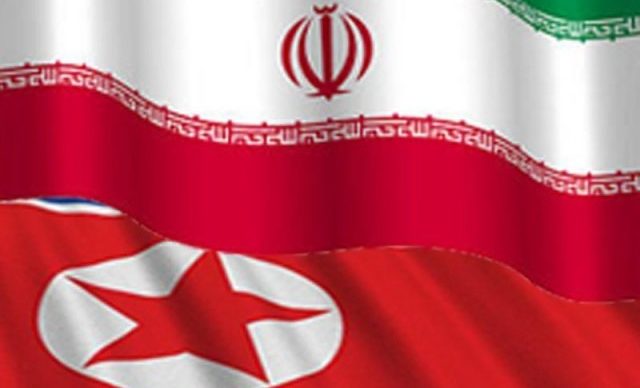
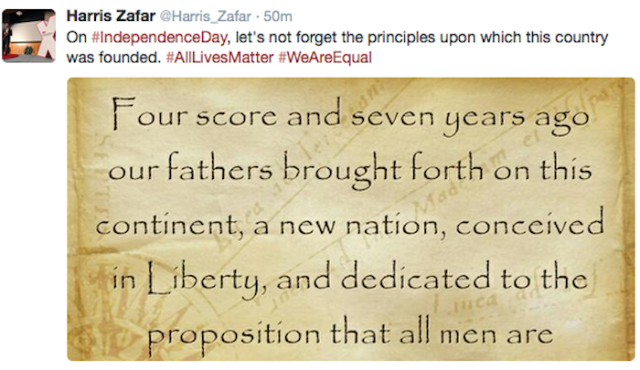


 NEW YORK
NEW YORK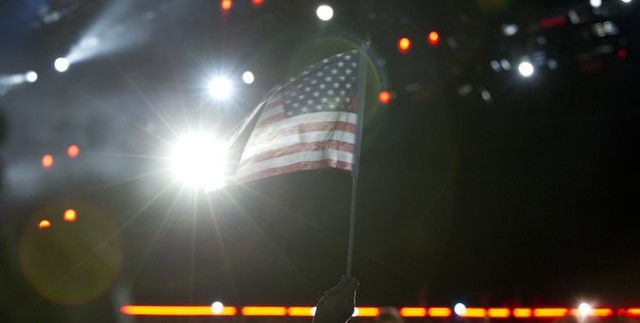


 With the publication of his memoir,
With the publication of his memoir, 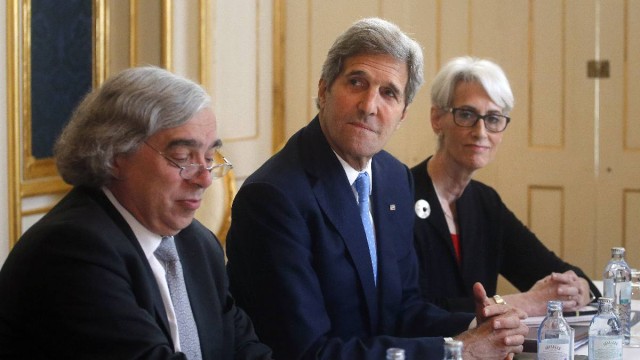



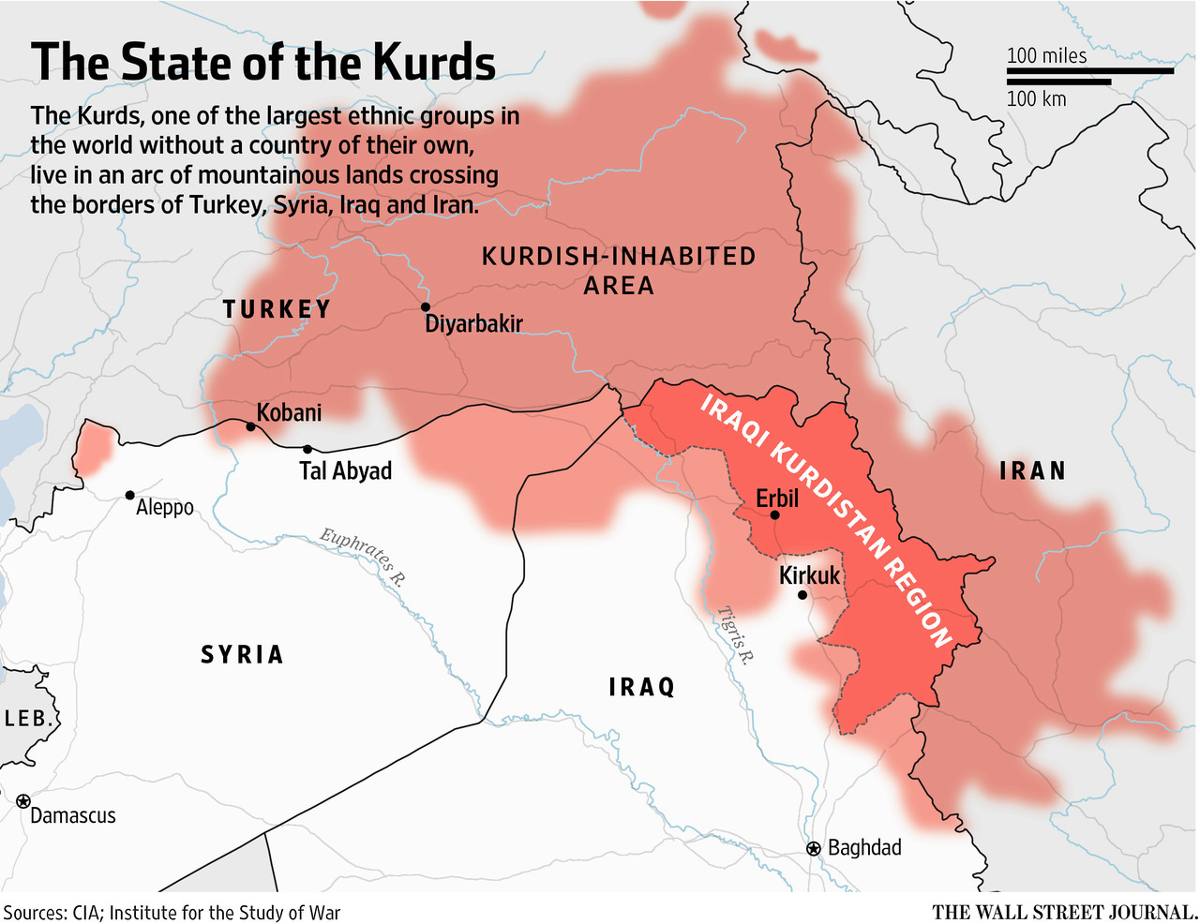 In the Wall Street Journal Weekend edition, June 20-21, 2015, Yaroslav Trofimov writes of the possible rise of an independent Kurdistan,
In the Wall Street Journal Weekend edition, June 20-21, 2015, Yaroslav Trofimov writes of the possible rise of an independent Kurdistan, 


